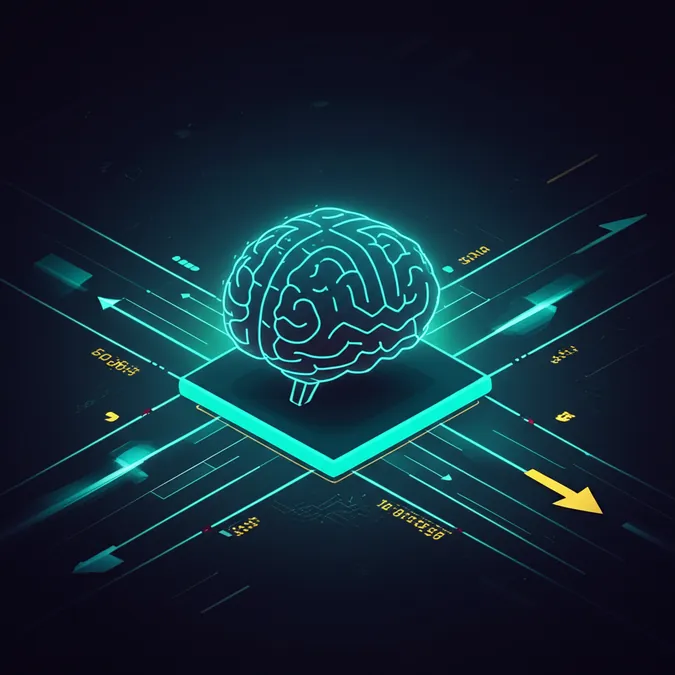Developer Offer
Try ImaginePro API with 50 Free Credits
Build and ship AI-powered visuals with Midjourney, Flux, and more — free credits refresh every month.
Why Human Intuition Will Always Beat Artificial Intelligence
The Double Edged Sword of AI
There's a lot of buzz about how super-powered computers and artificial intelligence are set to revolutionize our world. We hear promises of custom cancer cures, free global energy, and even a simplified tax code—a true utopia. On the other hand, some fear that AI could efficiently wipe out humanity. The truth likely lies somewhere in the middle, but I'm not losing sleep over it. There are simply some things that AI will never be able to do.
The Human Touch in a Digital World
I recently listened to educators discussing the rise of AI in schools. Lolita Martin, a careers teacher at Elkhorn Middle School, shared how she can easily spot an assignment written by AI instead of a student. With tools like ChatGPT, Google Gemini, and Microsoft Copilot becoming common, students are tempted to take shortcuts. Martin has a simple method for verification. "If I see a word like ‘allegory’ used in the completed assignment, I’ll ask the student to please define the word ‘allegory,’ then use it correctly in a sentence for me. If their response is ‘Uh, what?,’ I’m pretty sure that student didn’t write that paper unassisted," she explained.
This shows that AI isn't as foolproof as it seems. It can perform incredible feats, like landing a space probe on a distant planet with pinpoint accuracy. But can it figure out how to stop a two-year-old with something mysterious in his mouth from running away from his mom? Some situations require a level of humanity that AI completely lacks.
An Officer's Intuition at the Park
On a blistering hot Wednesday evening, Frankfort Police Department Officer MJ Byrd and I were recovering under some trees at East Frankfort Park. We had just been soundly defeated in a game of pickleball and were catching our breath with some Gatorade. As I was wondering what went wrong on the court, I noticed Officer Byrd wasn't looking at me.
His attention was fixed on two small children, perhaps four and six years old, at a nearby water fountain. "Is that kid barefoot?" he asked. I was too exhausted to see that far, let alone notice if a child was wearing shoes. To me, they were just two kids getting a drink on a hot day. I paid them no mind. Soon after, they wandered up the lane toward the dog park and playground, disappearing from view.
A Quiet Investigation and a Happy Reunion
Officer Byrd suddenly stood up and walked toward the fountain. He stopped a woman walking down the lane and asked her a question, pointing in the direction the kids had gone. I couldn't hear their conversation, but she shook her head and pointed toward the parking lot in the opposite direction. He then quickly returned to his cruiser and drove up the lane, leaving me behind.
Shortly after, a white car sped past, going the wrong way up the one-way lane, followed closely by two police vehicles. I figured someone was about to get a ticket. But then Officer Byrd returned, parked, and got out of his car. He didn't look cooled off from the air conditioning, but he did seem pleased.
He explained that he had followed the children to the playground and asked them who they were with. After some gentle questioning, the only information they could provide was "Gramma," with no name or address. He radioed dispatch and discovered a frantic call had just come in from a distraught grandmother looking for her two missing grandchildren.
It turned out, Gramma had agreed to walk the kids to the park from her nearby home. She asked them to wait in the yard for a moment, but when she came out, they were gone. Living every guardian's worst nightmare, she drove to the park, didn't see them, and began circling the neighborhood calling their names. The kids had simply decided to head to the park on their own.
Just as he finished the story, the same white car drove slowly past. Inside was a relieved grandmother with two smiling children waving goodbye. The other two FPD cars followed, their drivers giving Officer Byrd a respectful nod. He turned to me and asked, "Is there any Gatorade left?"
Why People Matter More Than Processors
For all our hopes and fears about artificial intelligence, it was a real, attentive, and concerned human who solved this crisis. Officer Byrd noticed an unsupervised, shoeless child from 50 yards away on a sweltering day. He saw the same scene I did, but in an instant, he made perceptions, connections, and decisions based on the children's well-being. He didn't debate it; he simply acted.
I’m not worried about a world with too many super-smart computers. I’m worried about having too few people like Officer MJ Byrd.
John Arnett, of Frankfort, is a State Journal columnist, financial regulator in public service and a longtime coach for Frankfort Parks and Rec in the summer. He can be reached at bigdukeinky@icloud.com
Compare Plans & Pricing
Find the plan that matches your workload and unlock full access to ImaginePro.
| Plan | Price | Highlights |
|---|---|---|
| Standard | $8 / month |
|
| Premium | $20 / month |
|
Need custom terms? Talk to us to tailor credits, rate limits, or deployment options.
View All Pricing Details

